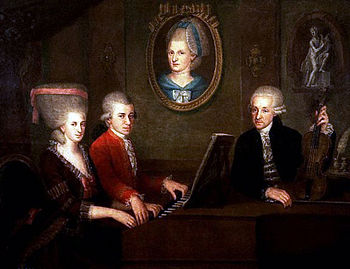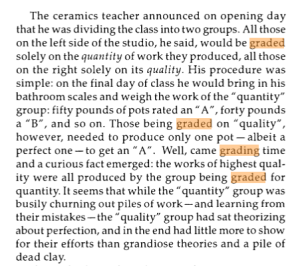
(Affiliate Link)
Quote by Geoffrey Colvin in chapter 2 of his book “Talent is Overrated: What really separates World-Class Performers from Everybody Else“:
“Mozart’s father was of course Leopold Mozart, a famous composer and performer in his own right. He was also a domineering parent who started his son on a program of intensive training in composition and performing at age three…Wolfgang’s first four piano concertos, composed when he was eleven, actually contain no original music by him…Mozart’s first work regarded today as a masterpiece, with its status confirmed by the number of recordings available, is his Piano Concerto No. 9, composed when he was twenty-one. That’s certainly an early age, but we must remember that by then Wolfgang had been through eighteen years of extremely hard, expert training. This is worth pausing to consider. Any divine spark that Mozart may have possessed did not enable him to produce world-class work quickly or easily”
In case after case, Geoffrey Colvin goes on to explain that the famous people who are known worldwide for their amazing skills had to work very hard at being that good. Their work regimen contradicts the popular notion that such people are born talented. It is also true that they usually started very young and were strongly guided by their parents hopes and plans. It is their parents oversight that allowed them to focus with such intensity without too many distractions from the normal school routines that other school children would have to follow. This is good news because it implies that parents can deliberately copy the parental pattern of encouraging talent in their own child, starting in their home. That difference in time between starting at age 12 and age 22 can be a good ten years of talent creation. Your child could easily fit his 10,000 hours of deliberate practice by the time other adult children are just beginning to look for a productive output.



